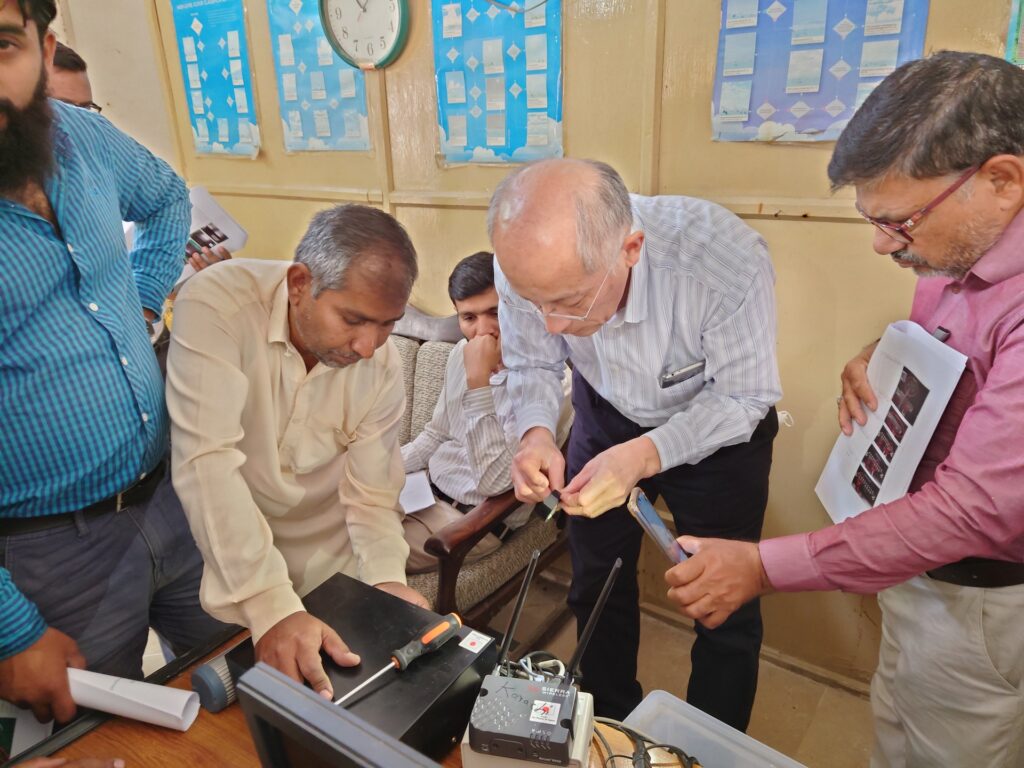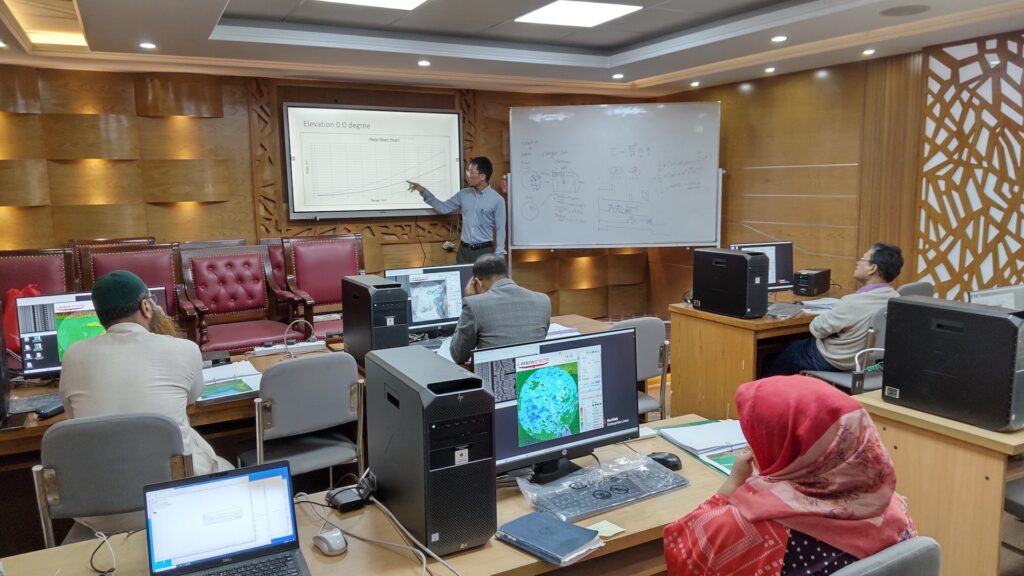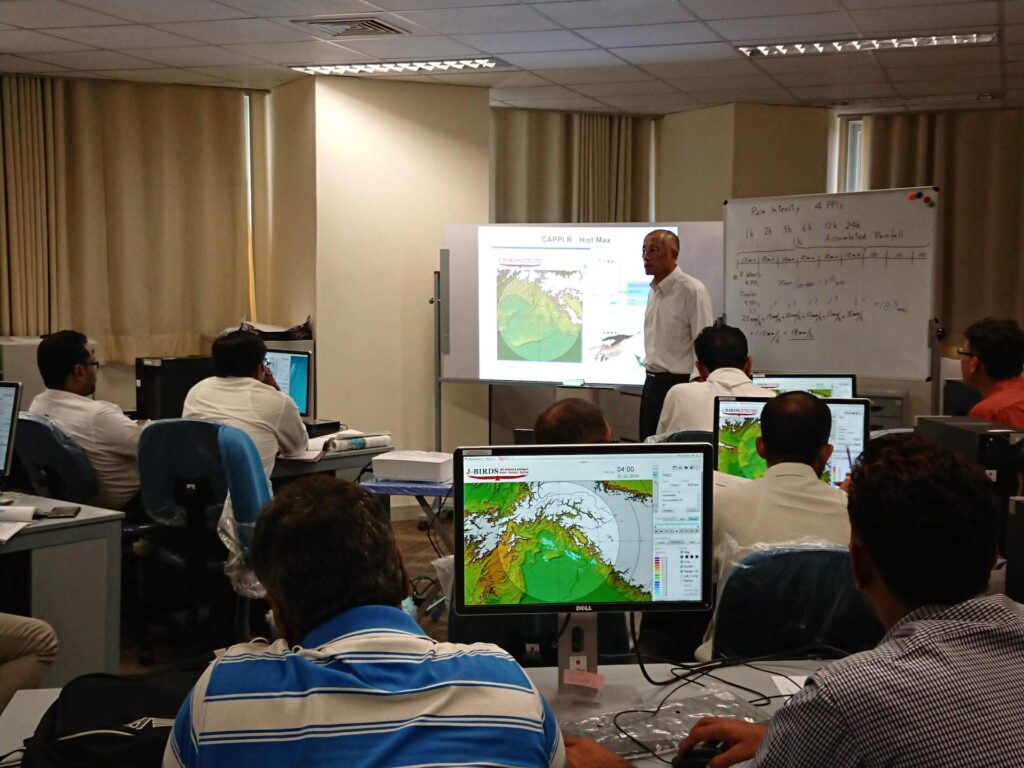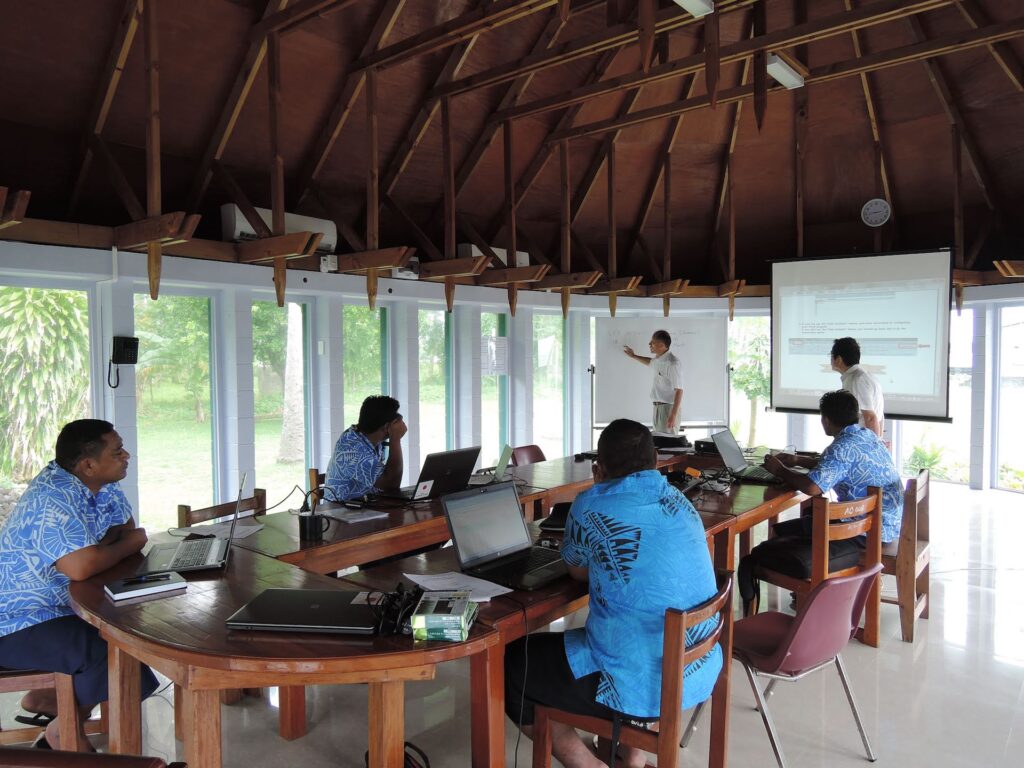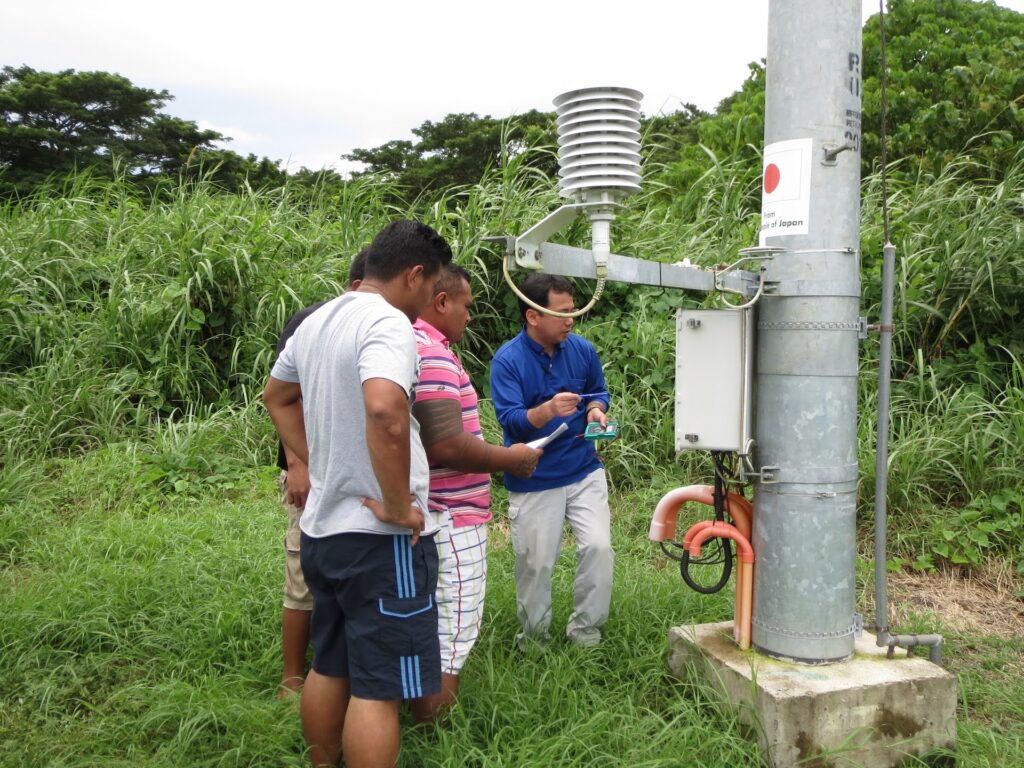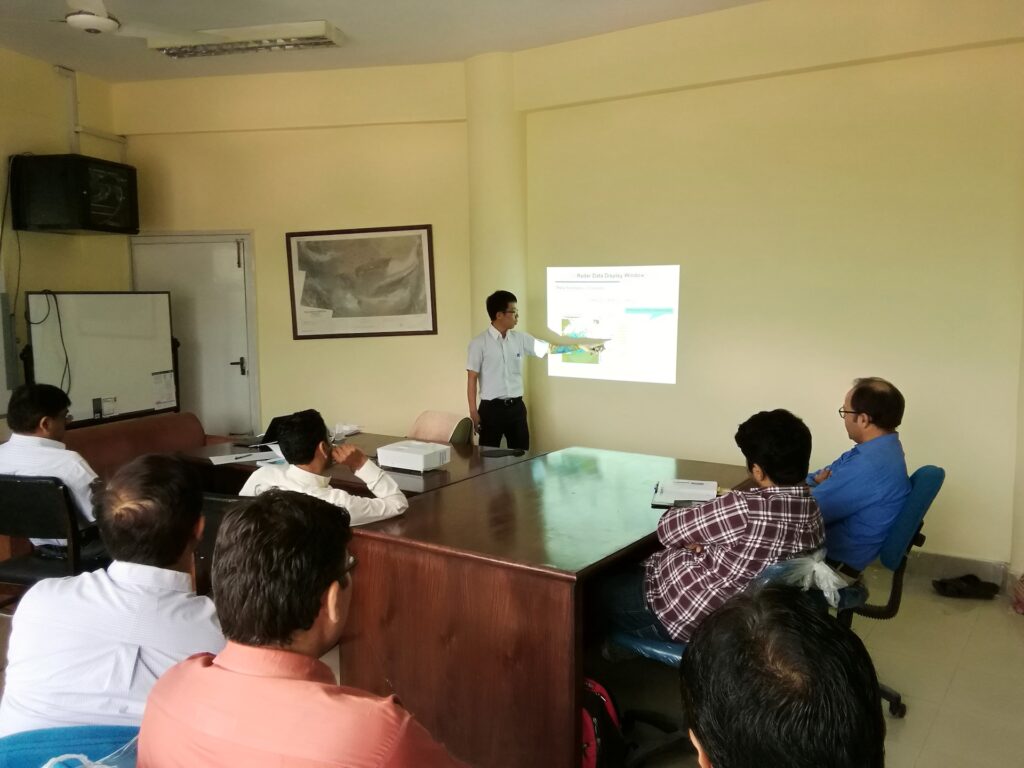Survey service
As a development consultant company, we have carried out survey work in many countries around the world. Our survey work is mainly for the implementation of projects in developing countries conducted using Japanese Government provided grant aid of for, but we also provide survey work requested by international aid organisations such as the World Bank, as well as domestic research institutions and private companies. Click here to see our survey work.
Our main focus during survey work for developing countries has been in the fields of meteorology, hydrology and disaster management. We have extensive experience in the establishment of meteorological and hydrological systems, such as weather radar, automatic weather observation, airport weather observation, river level monitoring, wave observation, wind profilers, and support systems for forecasting and warning operations, GTS communication systems, High Performance Computing (HPC) systems, meteorological satellite data reception systems and other systems, and in the construction of meteorological, hydrological and disaster management facilities.
When carrying out surveys, our consultants, who have wealth of expertise and experience in equipment, construction, meteorology/hydrology/disaster prevention and ICT work together as a team to ensure efficient, high-quality survey work whilst paying attention to cultural and religious differences and safety aspects.
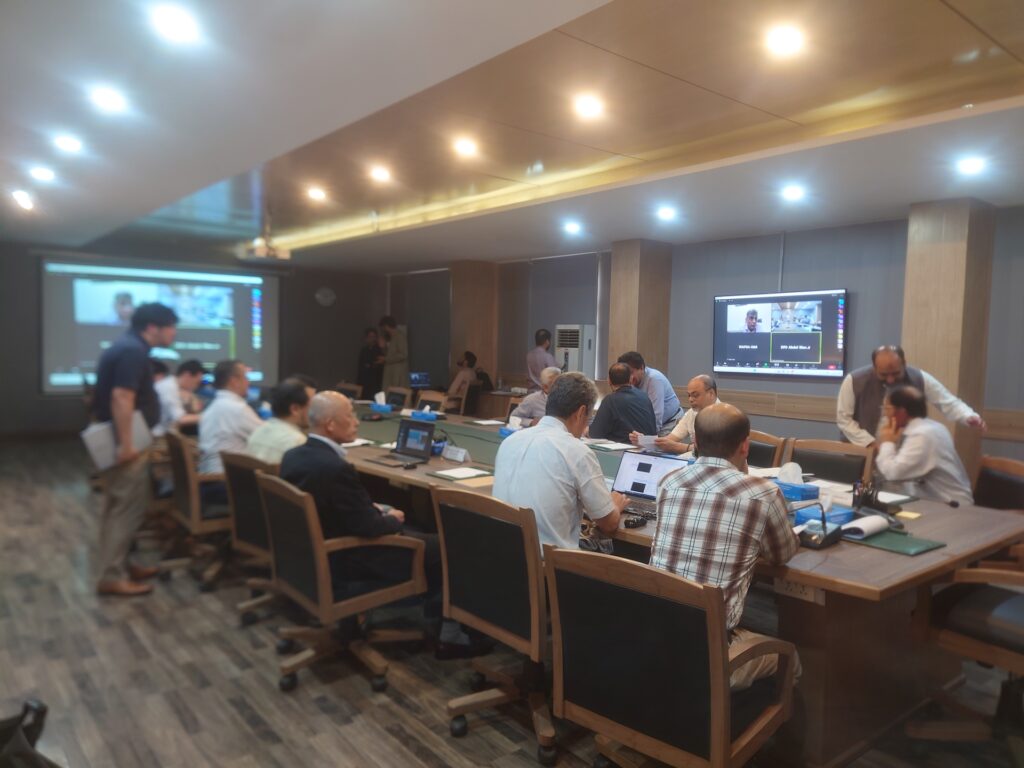
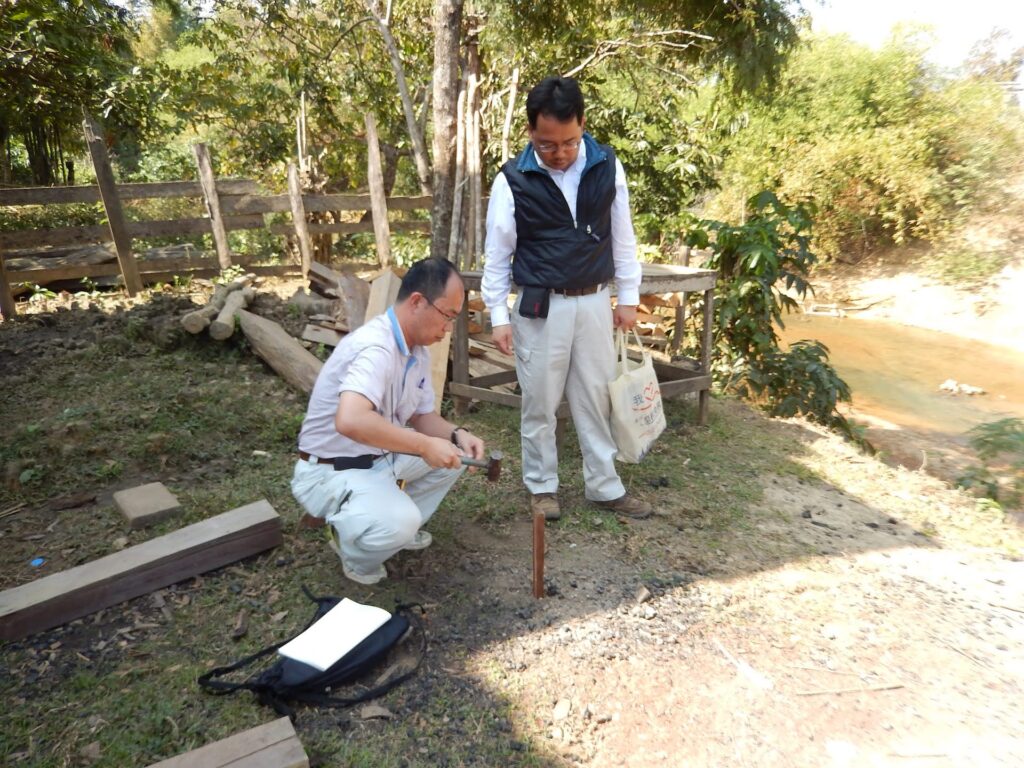
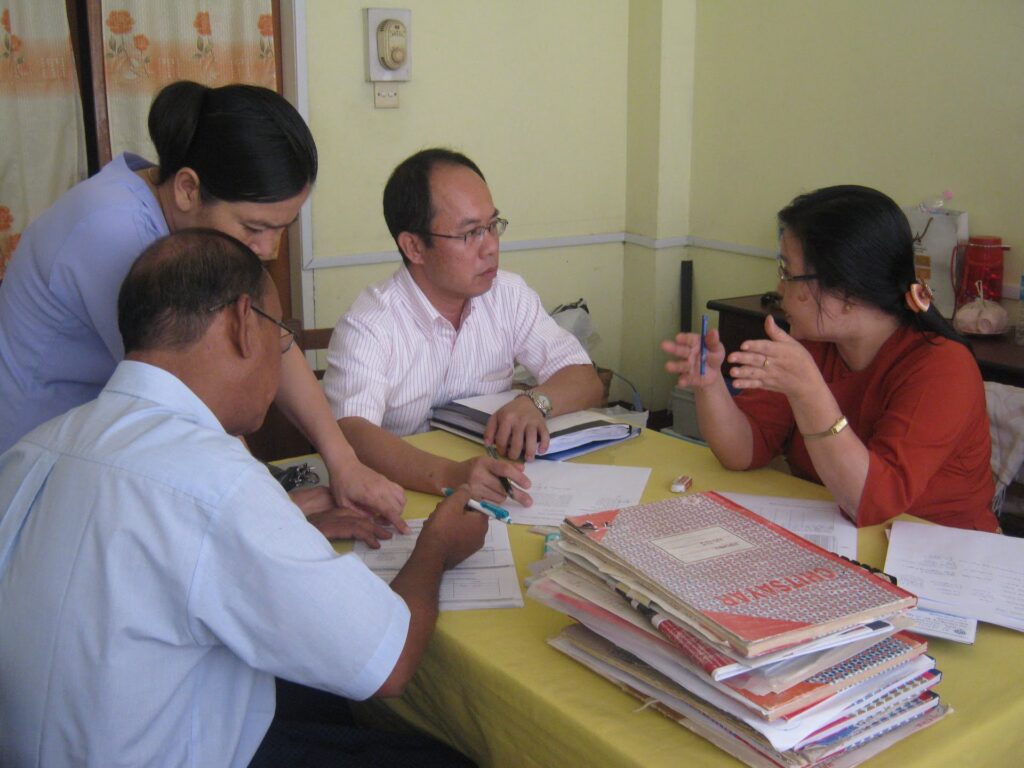
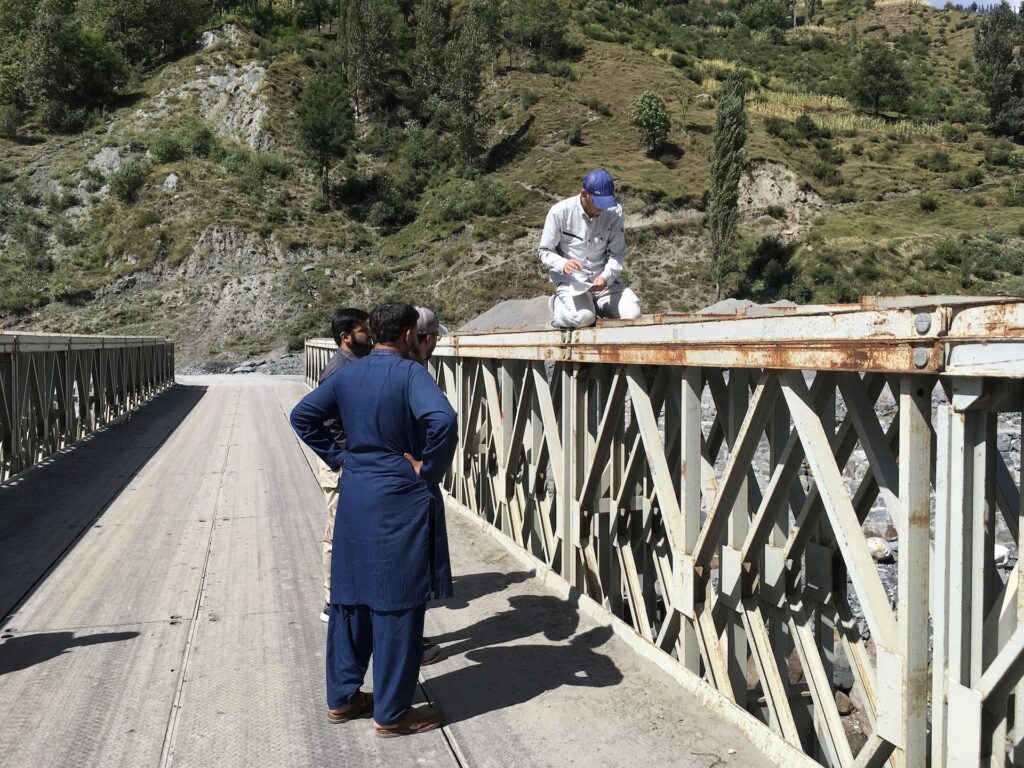
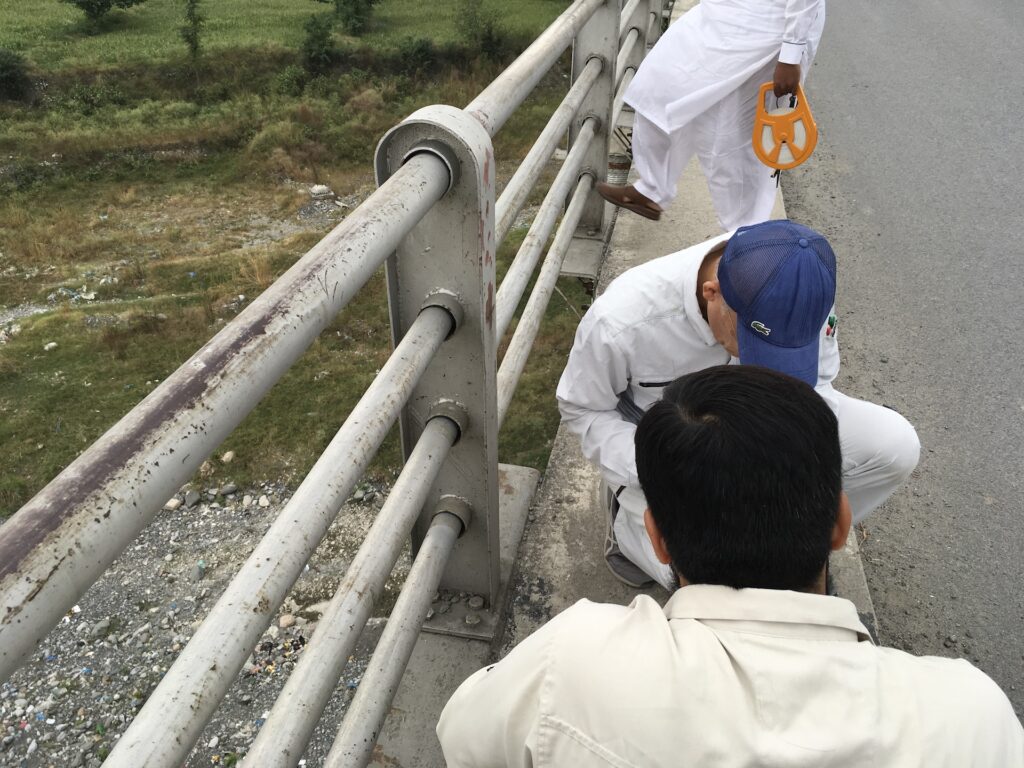
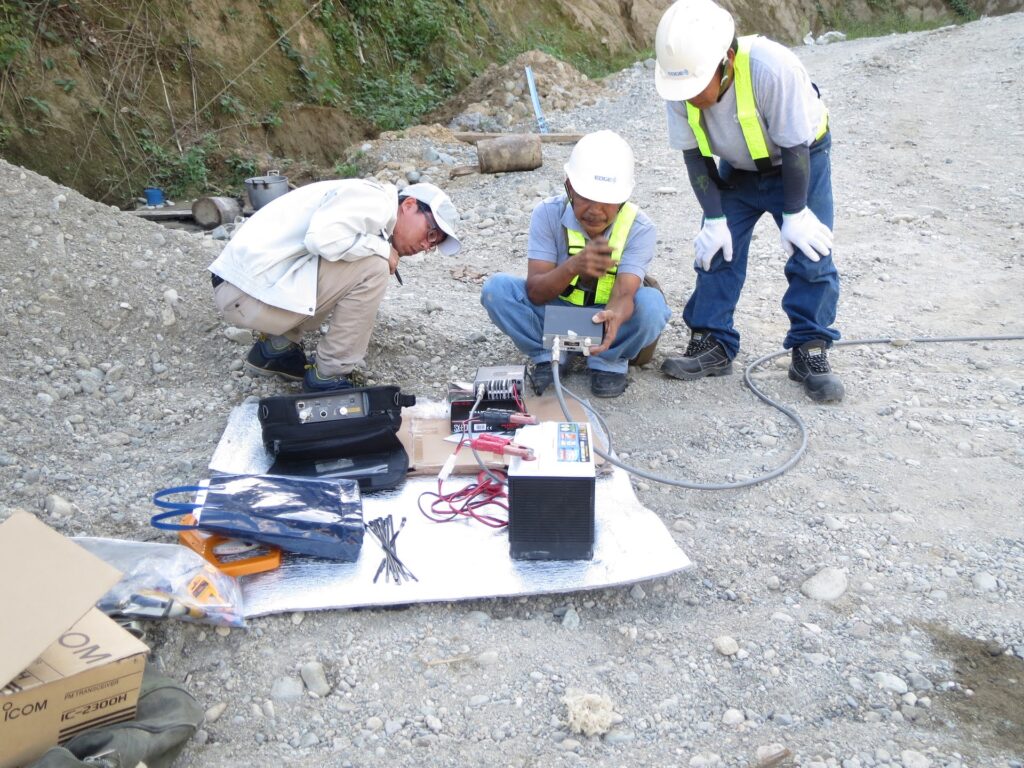
Design (basic and implementation) and cost estimation service
We design equipment, telecommunications, construction and building facilities, formulate project implementation plans and estimate the cost of grant aid projects by the Japanese Government. In the design service, we take into account local conditions including safety aspects and customs, the budget required for operation and maintenance by the recipient country, the technical level of staff and staffing without gender discrimination. We also actively utilise renewable energy sources such as solar and wind power, which are friendly to the environment, to ensure a good balance between ensuring convenience and sustainability for the recipient country and reducing environmental impact. In addition, on a regular basis we actively collect information on products and services provided by domestic companies that have high technological capabilities and that have been supporting Japan’s social infrastructure and reflect these in our designs so that such domestic companies can contribute to the project. In the cost estimation service, we always strive to carry out appropriate cost estimation from a long-term perspective up to the completion of the project in accordance with various standards and guidelines.
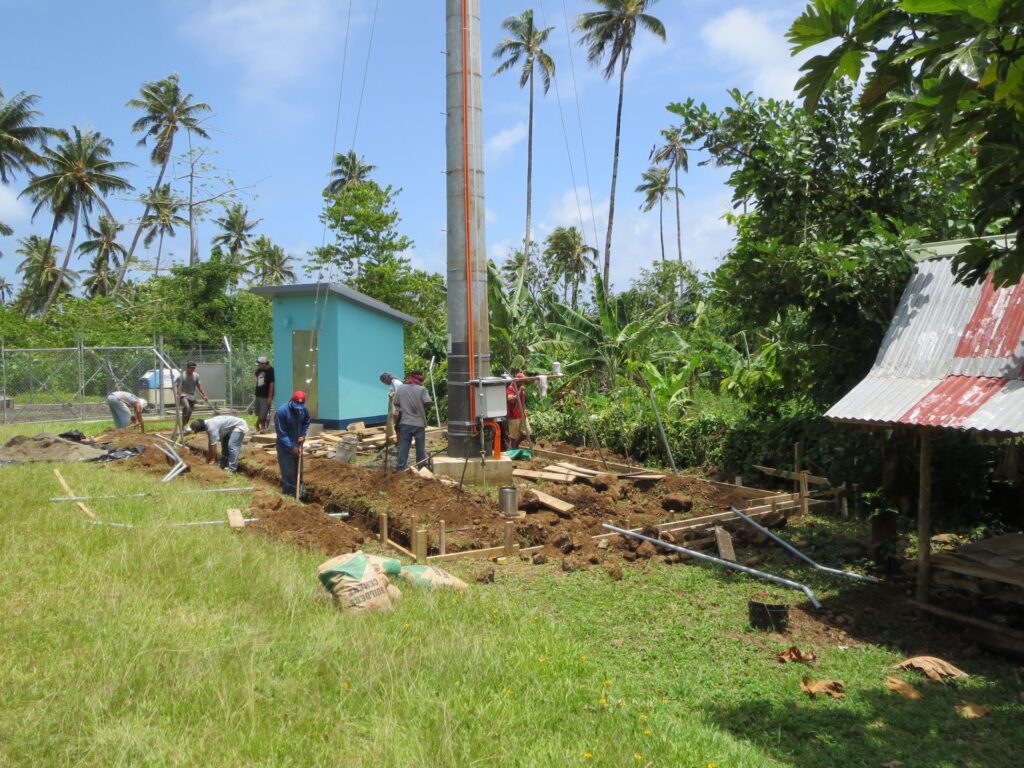
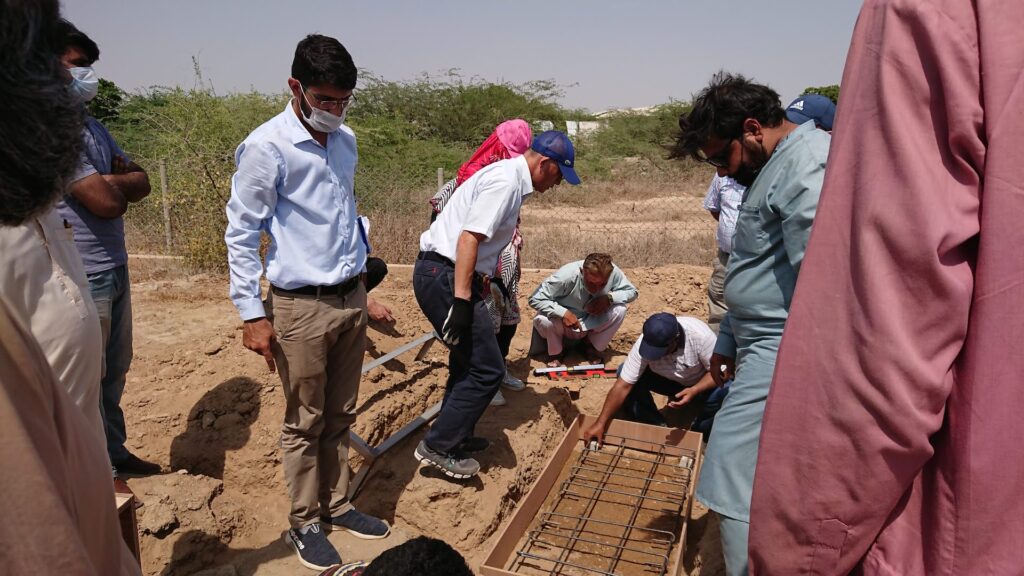
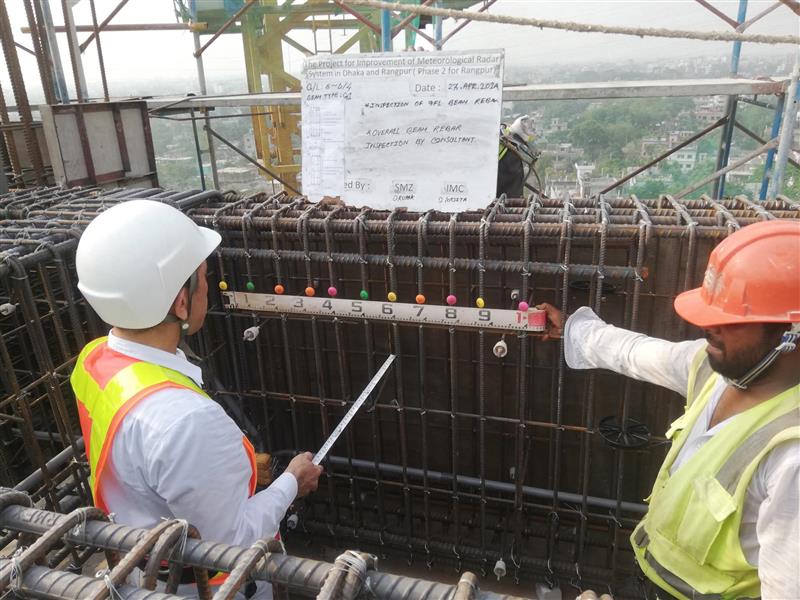
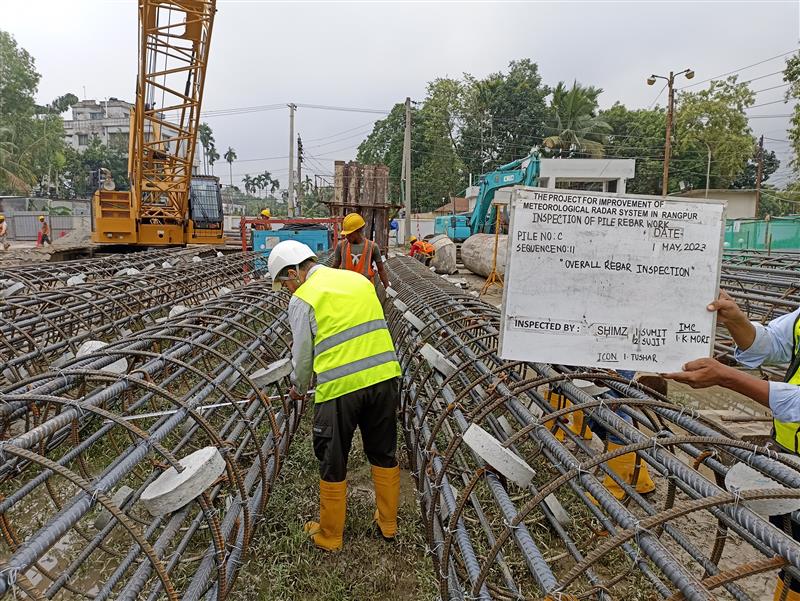
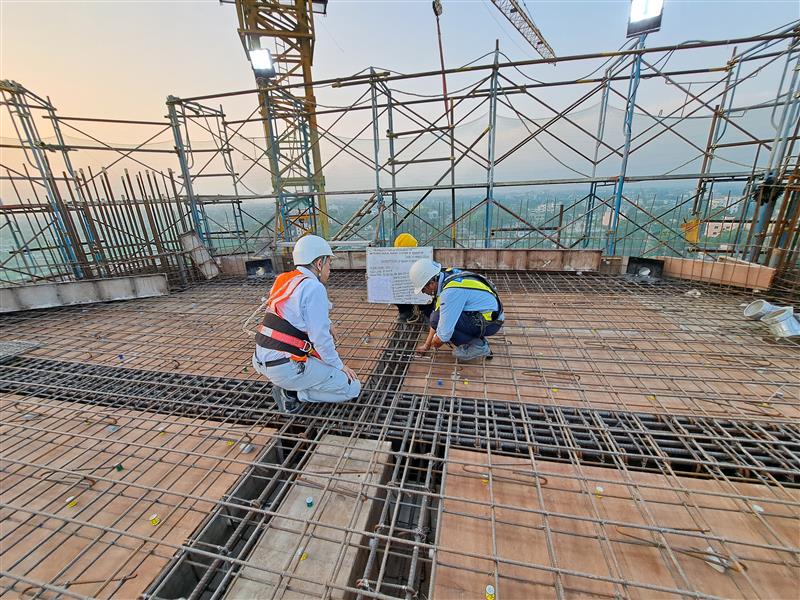
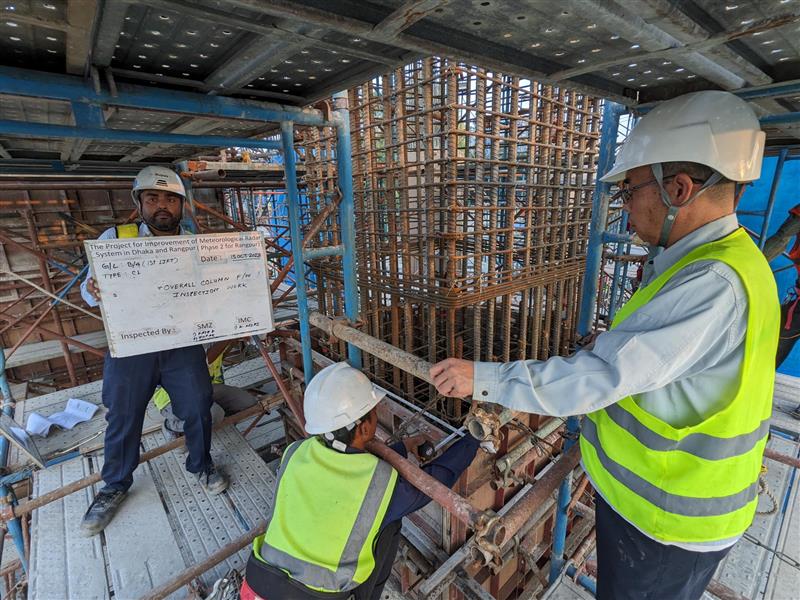
Construction supervision service
We have been providing construction supervision services for meteorological, hydrological and disaster prevention projects for many years. Click here to see the grant aid projects we have been involved in.
As a consultant in construction supervision work, we take the initiative to actively get involved in issues that arise in the field and work together with the contractor to solve these issues rather than leaving the issue to the construction contractor. .. We believe that our way of working has earned us the trust of the implementing agencies in the recipient country and the trust of the construction contractor., This approach has also assisted in maintaining our high technical skills. In developing countries, unstable social conditions and other factors may cause local conditions to change after the field survey and necessitate design changes, but we try to respond appropriately and flexibly in consultation with the implementing agencies and contractors in the recipient country.
Technology transfer service
In grant aid projects, the establishment of equipment and facilities is not the end of the story, and an important point is ensuring sustainability after delivery of this equipment and facilities.. In order for installed equipment and facilities to be utilised over the long term, it is essential that the implementing agencies of the recipient country fully learn how to maintain, manage and utilise the equipment and facilities. For this reason, we provide various training by using the scheme called Soft Component. Furthermore, there is also a technical cooperation scheme for the long-term transfer of highly specialised skills, and we have contributed to improving the technical capacity of implementing agencies of recipient countries and ensuring their sustainability through several technical cooperation projects. Click here to see our track record of technical cooperation projects.
In addition to their expertise and wealth of experience in the field of training, our employees in charge of training have all completed a long term assignment as a JICA Overseas Cooperation Volunteer where they lived in a developing country and transferred technology there.. The content and progress of the training and the way of communication are adjusted for the technical level, language level and expertise level of trainees, while taking local conditions into consideration. With gender equality in mind, we also encourage the recipient country’s implementing organisations to provide opportunities to their staff to participate in training and to apply the knowledge and skills earned through the training in their work without gender discrimination. We believe this promotes sustainability in the implementing organisations. We make every effort to ensure that the equipment and facilities developed with our assistance are utilised over the long term.
